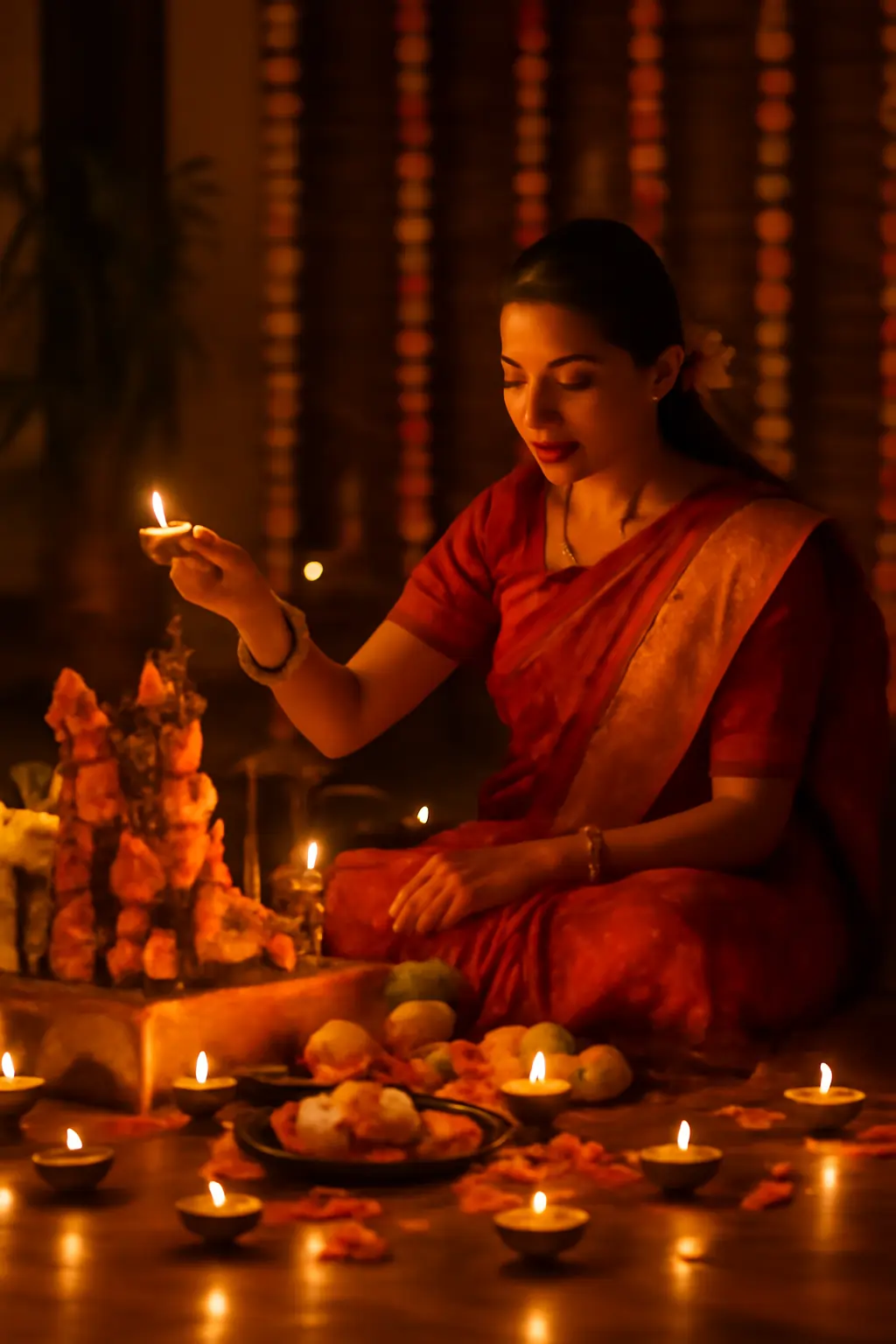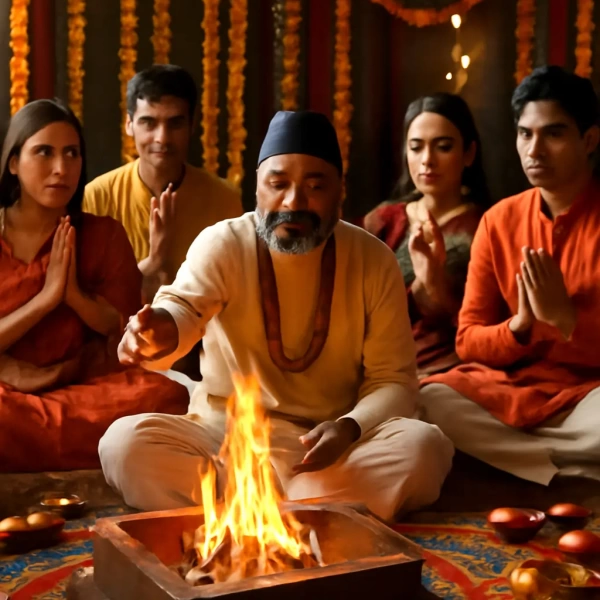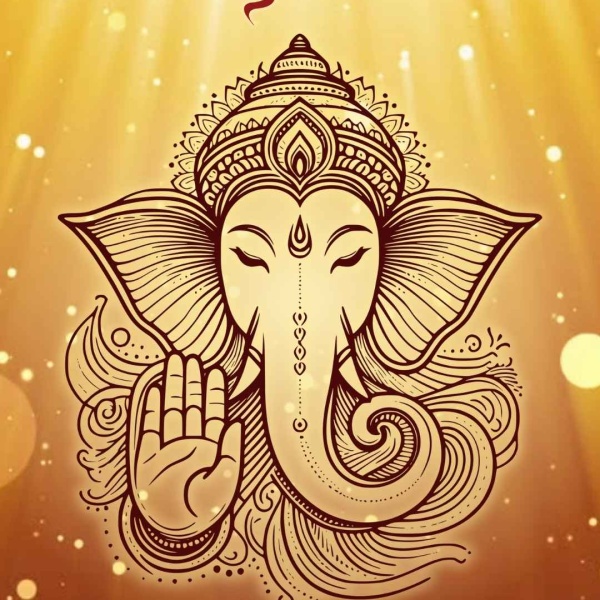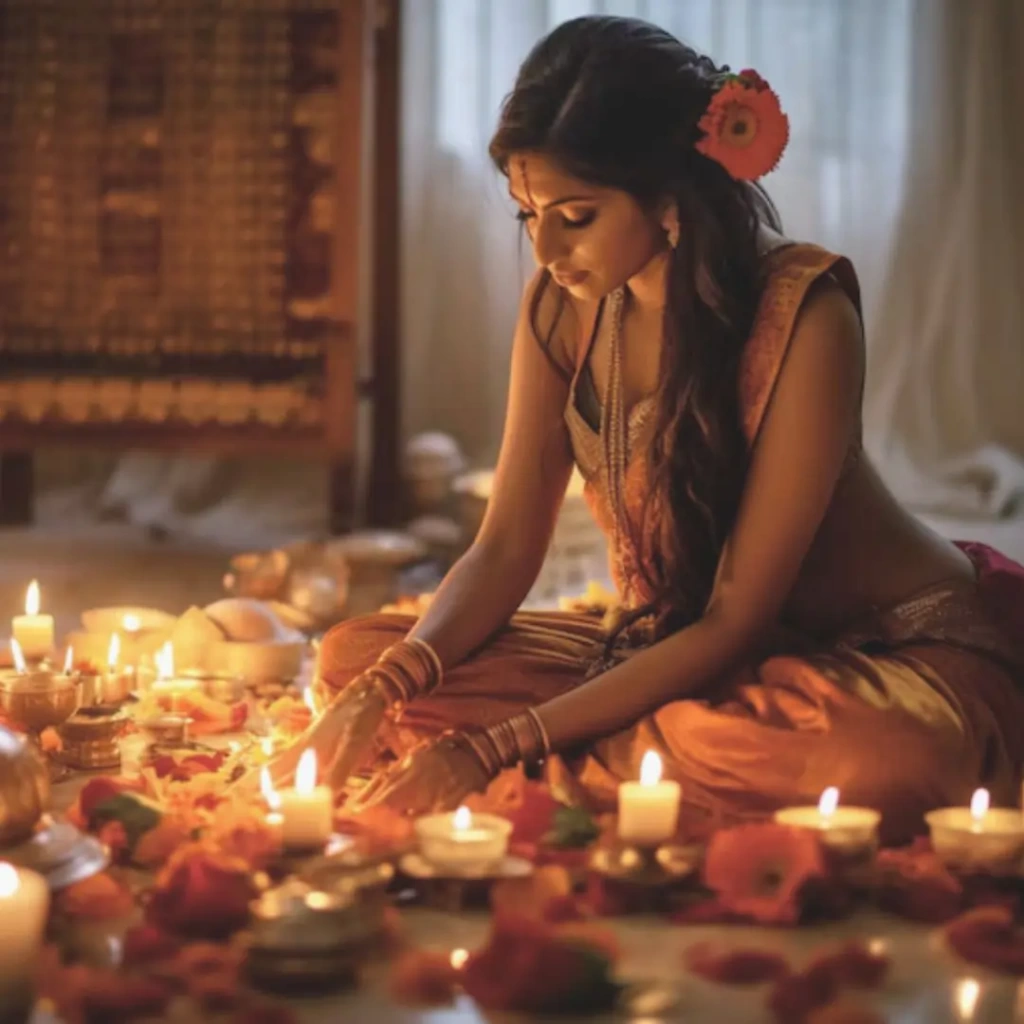
Introduction: Festivals and the Modern Woman
Festivals in India and across the world are often linked with family gatherings, traditional roles, and community rituals. But for many single women, whether by choice or circumstance, these moments can feel isolating. Society sometimes places expectations on women—assuming they should celebrate only within family structures.
The truth is, festivals are for everyone. You do not need a partner, a household, or a large family to connect with the sacred. Through solo puja practices for women, festivals can become deeply personal experiences of spirituality, joy, and empowerment.
This guide explores how single women can embrace festivals through self-led rituals, creative expressions, and meaningful community sharing.
Why Solo Puja Practices Matter
Solo puja is not about loneliness—it is about independence, inclusivity, and self-celebration.
Benefits of Solo Puja Practices for Women
- Self-Connection: Helps women build a personal bond with the divine.
- Flexibility: Allows freedom to perform rituals in a way that feels comfortable.
- Healing & Peace: Encourages mindfulness and inner calm.
- Empowerment: Breaks stereotypes that festivals are only “family-based.”
- Community Inclusion: Opens space for new ways of celebrating with friends or groups.
Solo puja is not about doing less; it is about experiencing festivals in ways that are meaningful to you.
Preparing for Your Solo Puja
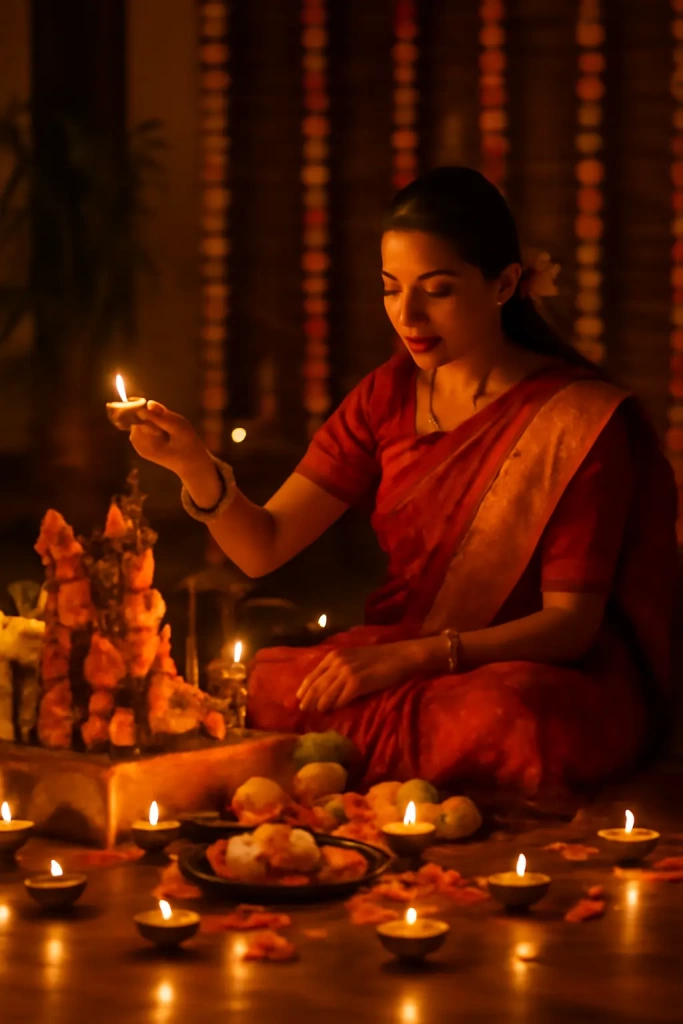
Before the day of the festival, spend some time preparing intentionally.
- Create a Sacred Space
Choose a clean corner in your home. Decorate it with flowers, diyas, or a simple cloth. A small altar with idols, photos, or spiritual symbols is enough. - Gather Essentials
Collect puja items such as incense, lamps, fruits, and water. Remember, you do not need to buy everything; simplicity is powerful. - Dress for the Occasion
Wear clothes that make you feel festive—traditional or modern. Dressing up adds energy to the ritual. - Set Your Intention
Before beginning, take a moment to reflect: “What do I want to feel or honor through this puja?” It could be peace, gratitude, or strength.
Simple Solo Puja Rituals
You do not need elaborate arrangements to connect spiritually. Here are some easy rituals for single women during festivals:
1. Personal Prayer and Meditation
Sit quietly before your altar, light a lamp, and close your eyes. Recite prayers, mantras, or affirmations that resonate with you.
2. Gratitude Writing
Keep a small notebook where you write what you are thankful for on each festival. Over time, this becomes your “festival gratitude journal.”
3. Offering Food to the Divine
Prepare a small dish—sweet or savory—and offer it as prasadam. After the ritual, enjoy it mindfully as a blessing.
4. Singing or Chanting Alone
Music is a powerful form of devotion. Chant mantras, sing bhajans, or play spiritual music to uplift your energy.
5. Creative Expressions
Paint, dance, or write poetry as a form of worship. Spiritual expression is not limited to traditional rituals.
Want to know more about Festival & Vrata Guides
Community Sharing and Connection
Festivals are also about togetherness, and being single does not mean being excluded.
- Join Women’s Circles: Many communities host group pujas or kirtans open to everyone.
- Host a Small Gathering: Invite a few friends or neighbors for a shared ritual or meal.
- Online Celebrations: If meeting physically is difficult, join online satsangs, workshops, or prayer sessions.
- Service to Others: Volunteer at a temple, NGO, or community kitchen. Serving others is one of the purest forms of puja.
Do’s and Don’ts of Solo Puja Practices for Women
Do’s
- Personalize your rituals—make them meaningful to your life.
- Stay mindful and present while performing puja.
- Involve creativity—journaling, singing, or art can be part of your ritual.
- Connect with like-minded women for community support.
Don’ts
- Do not feel pressured to follow every traditional step.
- Do not compare your puja to others—spirituality is personal.
- Do not treat solo puja as “less important.” It is equally sacred.
- Do not isolate yourself completely—allow community connections when possible.
FAQs on Solo Puja Practices for Women
1. Can single women perform puja alone?
Yes, absolutely. Puja is about devotion, not marital or family status. Women can perform rituals independently.
2. Do I need all traditional items for a puja?
No. Use what you have. Even a lamp, water, and flowers are enough for heartfelt worship.
3. How can I make festivals less lonely as a single woman?
Combine solo rituals with community sharing—invite friends, join groups, or volunteer.
4. Is it okay to modify rituals for personal comfort?
Yes. Spirituality evolves with you. The essence is devotion, not strict rules.
5. Can solo puja practices be empowering?
Yes. They build confidence, independence, and deepen your connection to the divine.
Conclusion: Festivals as a Celebration of the Self
Festivals are not only about tradition; they are about joy, connection, and renewal. For single women, solo puja practices create an opportunity to celebrate on their terms—through prayer, creativity, gratitude, or community sharing.
When you embrace festivals with an open heart, you discover that your relationship with the divine does not depend on family structures or social expectations. It depends on your sincerity.
So, light your lamp, sing your prayer, write your gratitude, and celebrate yourself. Your solo puja is as sacred and complete as any grand family ritual.
